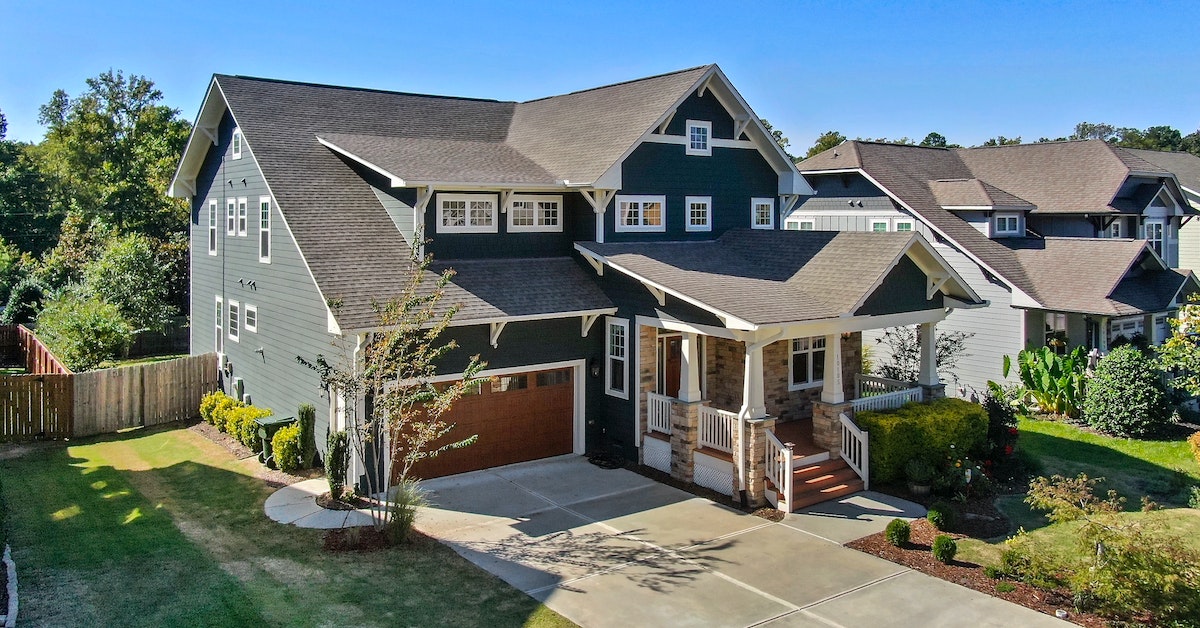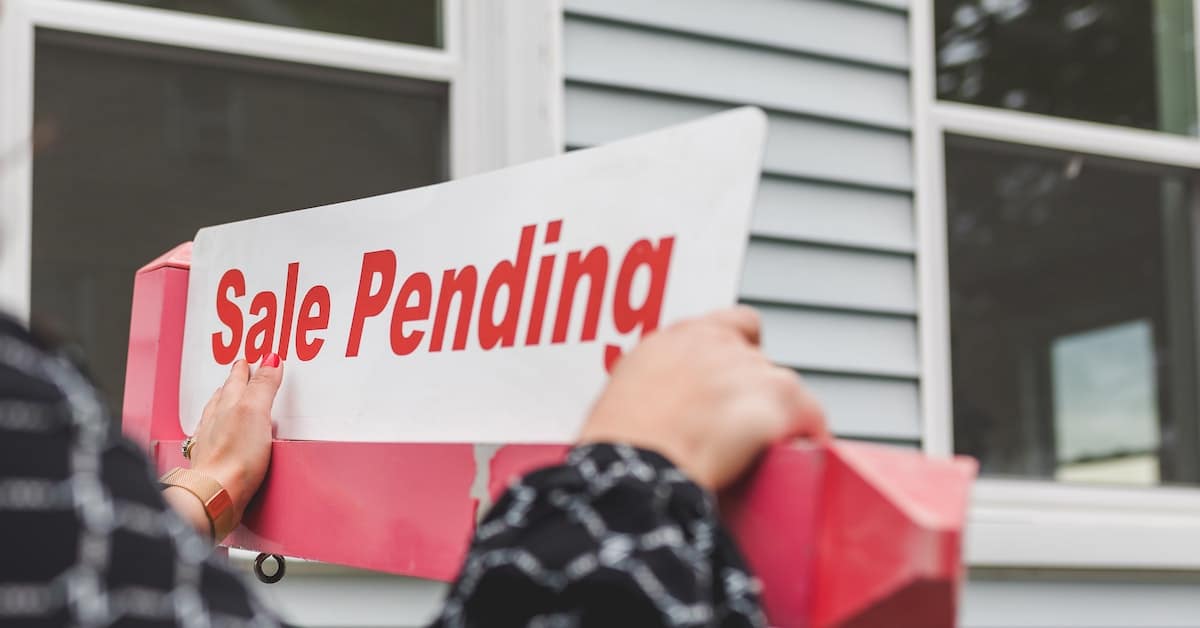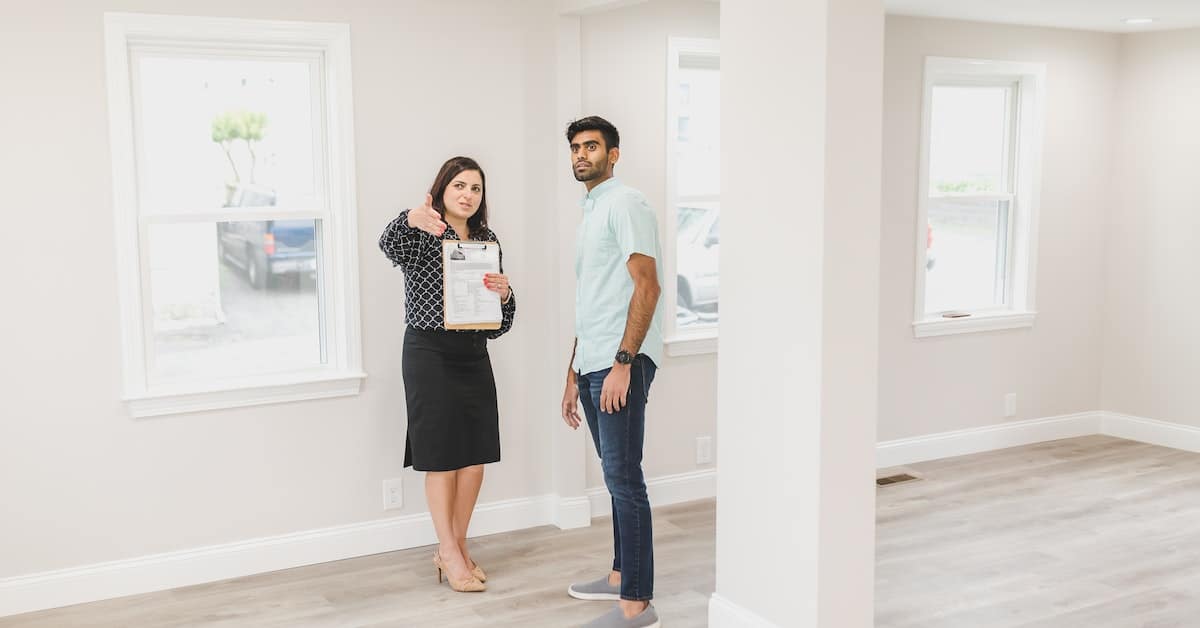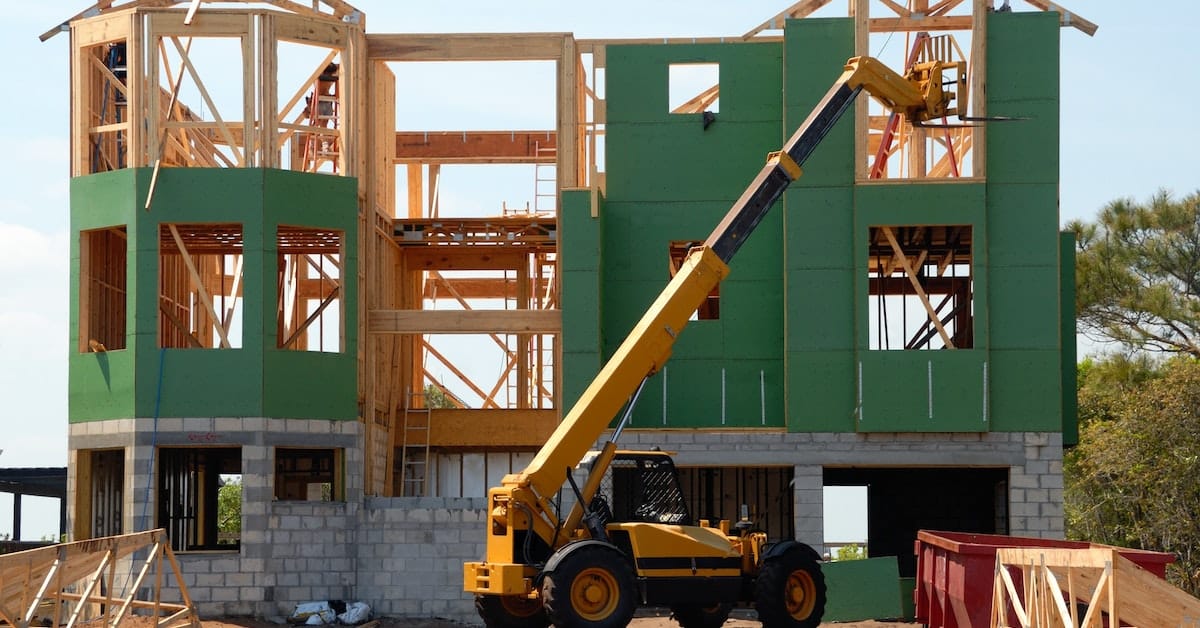
As a result of the COVID-19 pandemic and the inflation that followed, housing prices have climbed more than 30% since 2020. There is a lot of discussion surrounding a potential housing market crash and what that could mean for home buyers, home sellers, and the economy as a whole.
When is the housing market going to crash? Is it going to crash?
The real answer is: no one knows for sure. There are loud voices on both sides of the aisle stating with clarity that home prices will continue increasing but at a slower rate or that a crash à la 2008 is near.
Let's take a look at the myriad of factors involved in what will come of our current housing bubble.
A bubble in economics is a period of fast growth in the market value of an asset. When it comes to the current housing market, the asset in question is real estate.

However, bubbles can emerge in any sector of the economy. For example, some of the biggest economic bubbles in history include:
As you can see, bubbles are not a new phenomenon. In fact, another bubble that is fresh in our collective memory is the U.S. housing bubble that grew from the mid-90s to the mid-2000s. We’ll talk more about this major economic crisis and how it is similar and different from our current circumstances in the next section.
Housing bubbles can be caused by a mix of different factors including:
Some of the forces that can lead to a bubble popping in the realm of real estate include:
So the question remains: are we in a housing bubble right now?
The rate at which housing prices have grown in the last several years since the start of the COVID-19 pandemic is quite remarkable. Based on home sale price data from Redfin, the price of homes has increased to the tune of double digits year over year every single month starting in August 2020 through the middle of July 2022.

In short, the current housing market situation certainly fits the definition of a housing bubble.
At the same time, experts are quick to warn people that there are a lot of different moving parts when it comes to market changes, and this means that the sheer fact that there is a bubble doesn’t necessarily mean that a devastating burst is inevitable.
One of the reasons that conditions are as they are in the current market is that there has been a low supply of houses on the market compared to the amount of demand.
With mortgage interest rates rising several times in 2022, there are a lot of voices out there saying that a crash is imminent. At the same time, the decrease in homebuyer interest hasn’t been as substantial as some might have expected with the increased pressure on housing affordability.
It's perfectly natural that people are comparing the current market with the crash that occurred in recent memory. However, there definitely are some factors that distinguish our current situation from what happened back in 2008. Let's look at what is similar and different to help us try and understand what could be ahead.

There are varying theories on what exactly happened back in 2008, but some experts posit that the dot-com bubble mentioned earlier led to a change in investor behavior. Basically, the bursting of the dot-com bubble meant that investors in the United States wanted to move their money into a safer asset class (or so they thought)– real estate.
The prices of homes in the U.S. nearly doubled between 1996 and 2006. However, the lion’s share of that increase (two-thirds) happened between 2002 and 2006.
There were a lot of signs at the time that a frenzy was occurring that was unsustainable. At the time, there were lots of houses being bought by sub-prime borrowers, tons of condo “flipping,” and rampant mortgage fraud, just to name a few.
The peak of this housing bubble occurred in 2006. Just three short years later, the average U.S. house had lost one-third of its value.
This occurrence resulted in the largest global economic contraction since the Depression in the 1930s. It wasn’t just U.S. homeowners that were impacted by the bubble bursting– the impact it had on mortgage-backed securities sent a shockwave through the entire globe.
This time period became known as the Great Recession. While 2008 is usually the year associated with this economic crisis because that is when the Case-Shiller home price index reported its largest price drop ever, housing prices reached new lows in 2011 after having started to decline all the way back in 2006 and 2007.
Many sources state that predatory lending practices were largely responsible for the housing market crash, but not all experts agree with this theory. It is fair to say that just about anyone could get a mortgage back in those days, which led to many homeowners facing foreclosure after adjustable interest rates rose. On top of that, the number of properties in foreclosure also increased due to rising unemployment.
One of the reasons that some experts say the current market is different from 2008 is that there are laws and regulations in place to prevent predatory lending. It is much more difficult to get a mortgage these days, and there has been a lot of talk about the fact that the people buying homes in this crazy market are qualified, home buyers. According to U.S. News & World Report, there are more qualified buyers looking for homes than there is housing supply on the market.
Thought it would be nice to be able to put a specific time and date on it, no one can know for sure when or even if the housing market will crash.
When you hear people talking about a housing market crash, you might picture the bottom falling out of home prices overnight. However, it's important to understand that these types of economic forces can take a while to unfold.
Let's look at the 2008 crash as an example. In 2006 and 2007, there were increased foreclosures around the same time that home prices peaked. Several years later, in 2011, housing prices still hit new lows.
(If you're thinking about buying foreclosures to turn into rentals, makes sure you read the risks of this investment strategy first.)
It's worth driving home the reality that even if the forces are in play to have a reversal if not crash in the housing market, it might not mean you should keep living on your mom's couch because you expect to buy a cheap house in one month. No one knows exactly how things will play out, and it can take longer than you would expect for the market to correct itself-- if it does at all.
If you look at online forums like Reddit's r/realestate or r/REbubble, you will find a lot of different people posting their personal experiences and observations about the housing market in real time. Opinions about an impeding housing market crash range from right away to never, but it can be useful to glean some of the anecdotal evidence available about different housing markets across the country.
While there are many experts that say we shouldn’t expect a housing market crash, no one can predict the future. There are many other voices out there that warn of the many factors that could contribute to a market crash. Let’s look at some of the elements that could come into play in the coming months and years.
Many people that would typically be interested in buying a home right now are holding back from buying a home if possible. Now is not the ideal time to buy considering that prices are still very high and interest rates are much higher than they were during the pandemic.
At the same time, not everyone can pick the perfect time to buy a house. There are a lot of reasons someone might want to buy right now, whether it’s because they’re moving for a job, downsizing after their kids leave the house, or getting divorced.
On top of that, if someone is planning on living in a home for many years to come, trying to time the market isn’t necessarily the obvious choice because of the way that prices can shift over time.
Rent prices have been rising across the country as well, which means that people who need to relocate or find new housing have to choose between signing on for a high monthly rental rate or purchasing a home at prices that are significantly higher than just a few years ago.
The motivation that home buyers have as time marches forward could have an impact on the relationship between supply and demand. In short, if buyer motivation continues to decline and there are more houses on the market than there are buyers looking for them, things could shift in a downward direction.
The demand in housing markets across the country has cooled quite a bit from the fervor that occurred in the last several years. However, demand is currently still pretty strong compared to the number of homes on the market. If home inventory increases quickly, you could potentially see a steep drop in prices.
One factor that is on many peoples’ minds is the amount of investor purchasing that has been going on in the last several years. According to the Pew Research Center, a quarter of the homes that were sold in 2021 were purchased by investors. This is one of the reasons that rents have risen drastically in cities across the country since the start of the pandemic.
There is concern that many of these people will drop their investments as they see the tides start to turn, which could mean that there is a flood of supply on the market.
Another factor that can make the housing market more unstable is what happens in the sector of new home construction. For about a decade, there have been labor shortages among builders and the pandemic added more issues in the form of rising materials costs.

Home builders could potentially hold off on building new homes with even the slightest shift in buying activity. This could make the housing shortage even more severe and further upset the balance between supply and demand.
At the same time, if home builders have been keeping a steady pace during this time of house-buying frenzy, it's possible that they will be left with homes at prices people aren't willing to pay.
If the bottom fell out of unemployment, there are definitely reasons to be concerned about the potential impact on the housing market. When too many people don't have a means of earning an income, it can mean that foreclosures are more likely and the sale of distressed homes increases.
It's important to realize that some U.S. cities have been more impacted by the severe rise in home prices in the last few years. It's possible that a number of metro areas will experience the largest declines if the market does head south.
In 70% of the major metro areas in the U.S., home prices grew by 10% or more from May 2021 to May 2022.
Prices have been particularly mobile in cities like:
It is possible that certain cities that have experienced rapid housing price increases will feel a market downturn more significantly than other U.S. metros.
A report from Redfin released in July of 2022 looked at the cities that will be most susceptible to a housing downturn during a recession.
It found that a number of "popular migration destinations" were the most likely to feel the pain if housing prices start to turn downward. These were places that experienced an influx of new residents from elsewhere along with soaring home prices, such as Phoneix, Boise, and Tampa.
The housing market slowed considerably in the spring of '22, which competition cooling and mortgage rates making home ownership less affordable.
The report found that the popular migration destinations were more susceptible to falling home prices and a dramatic crash in value compared to relatively affordable northern metros like Buffalo, NY, and Cleveland, OH, which are expected to be more resilient.
If you're considering buying rental property in a US city, you'll want to take this type of info into account. Check out our list of the best places to buy rental property for some promising locations.
There are certainly many real estate experts that claim there is no crash coming in our future. Here are some of the reasons that they think the market will stay strong.
There are a lot of potential homebuyers in the U.S., with half the population made up of people that are Millennial-aged or younger. The largest share of people that buy homes in the U.S. are first-time homebuyers, and most first-time homebuyers are younger than 40.
The fact that 166 million people in the U.S. are right in this demographic leads many to believe that the buyer pool is deep and demand will stay strong.
On top of that, the inventory of houses has been at historic lows for some time. In the last ten years, inventory hasn't been increasing much at all, and the COVID-19 pandemic only exacerbated this. Combining these factors, some argue that the demand for homes will continue to be high while supply won't be able to keep up for years to come.
Another reason that some experts argue that the housing market won't be crashing anytime soon is that, in their opinion, the supply-demand imbalance isn't likely to quickly shift. The rationale here is that it will take homebuilders several years to add enough supply to balance the market after not building enough homes to meet demand over the last ten years.
In today's market, there is a substantial imbalance in favor of sellers. There are only 1.7 months of supply in the current market, while a balanced market would have about six months of supply.
New home construction did experience its fastest growth since 2006 in February of 2022, but not everyone believes that is enough to noticeably impact the prices of homes.
Before the housing crash, it was possible to get a mortgage without providing documentation of income. These days, it is a very rare occurrence to find a lender that will offer these kinds of "no-doc loans." This fact combined with the reality that many loans are government-backed and have minimum credit and down payment requirements imply that today's borrowers are less likely to default than the buyers leading up to the 2008 crash.
As evidence of this, 67% of mortgage originations in the fourth quarter of 2021 went to borrowers that had credit scores of 760 or higher. According to FICO, this is a "very good" score, meaning that the borrowers are more likely to repay their loans.
For this reason, some people believe that housing prices in the U.S. will simply stop increasing quite as quickly rather than drop dramatically.
People looking for housing right now are in a tricky place. Should they buy in this strong seller's market where prices are sky high? Or should they rent in a market where rates have been rising at the fastest pace in decades?
If you need a place to live, you might not have the luxury of timing the market. Some buyers are cheering on the idea of a housing market crash because they are otherwise out of luck when it comes to affordability.
Some say, though, that these people shouldn't get their hopes up. According to representatives from places like Redfin (who, to be fair, have an interest in the market not crashing,) the more likely outcome is that housing prices will only decline a small amount if at all.
Of course, if you're an investor, you're balancing a different set of factors. One of the reasons that US home prices reached record levels during the pandemic was investors ranging from mom-and-pop flippers to big Wall Street-backed landlords.
As the threat of recession loomed and mortgage rates made it more expensive and difficult to buy, however, investors started to pull back.
Buyers are also feeling the change in weather significantly, who are large-scale home flippers. As the frenzied buyer demand has started to cool down, iBuyers like Redfin have started accepting lower offers than they would have not long ago rather than carrying the costs of holding listings longer.
At the end of the day, only you can decide whether now is the right time to buy for you. You'll want to incorporate the information you gather regarding the national market and your local market into your decision along with your personal needs and goals.
Are you thinking about buying a rental property but aren't sure how to finance the purchase? Check out these twelve ways to get the money you need to buy your first investment property.
There has been a lot of info bouncing around online concerning different theories about the steep rise in housing prices. Ultimately, you have to look at each issue on your own to decide whether you think each is valid or not.
The reason it's worth giving different theories behind the housing bubble some thought is that it could have a serious impact on the market if any of them were to be true to the extent that some people propose.
One of these ideas has to do with sites like Zillow manipulating the market.
In 2021, a TikTok video went viral that criticized an unnamed but highly popular real estate site. The scenario described by a Las Vegas-based real estate agent named Sean Gotcher involved the iBuyer scheming the housing market locally thanks to their enormous user-generated database.
The idea is that they are driving up the price of homes on purpose by buying up a large number of houses in a small area. While he didn't name Zillow specifically, it's the name that came up the most in the discussion that ensued, along with Opendoor and Redfin.
Is this true? The real estate sites all say no.
The growing number of iBuyers still only amounted to 1.3% of the total U.S. single-family home market in 2021. At the same time, if there is truth to this notion, it could have a huge impact on highly-localized areas where such methods were being used.
According to a report from the Washington Post, one in seven homes sold in the top metropolitan areas in the U.S. were purchased by investors. If investors move beyond pulling back from buying and start selling their homes, it could have a big impact on the market in U.S. cities that have garnered heavy attention from investors.
There is also the matter of the Fed's quantitative easing in response to the COVID-19 pandemic to aid in the recovery. In order to stimulate economic activity, the Fed bought billions of dollars of assets from the private market. This means that businesses and consumers alike were holding more liquid cash than illiquid bonds.
As you might imagine, this could have had an impact on the housing market in combination with historically low-interest rates.
There are countless other popular theories about housing manipulation-- more than we can go through here.
However, it can be useful to engage with these ideas even if only to help realize just how multifaceted and complex the network of factors that influence the U.S. housing market and the direction it will head in. If there is manipulation occurring from any direction, it can mean that using the historic metrics for predicting the trajectory of the market can't be fully relied upon.
It's important to keep the larger housing market in mind when considering buying a rental, but talk of a looming housing crisis shouldn't be the only factor you incorporate when deciding whether or not to buy a rental.
While local markets are related to the larger market, they can also have their own elements that impact how they react to market trends. For example, cities like Miami, Tampa, Las Vegas, Detroit, and Orlando were some of the hardest hit during the housing collapse in 2008, while places like San Antonio, Oklahoma City, Houston, Austin, and Dallas proved to be more resilient.
If you're thinking about buying a rental, you'll want to consider a long list of factors about the market as a whole, your local area, and the specific property in question.
One's for certain, though-- you'll want to make sure that all of the numbers add up in your favor before you close on a rental property. To help you create your shortlist and select the perfect property for your portfolio, be sure to use our rental property calculators.
We encourage you to share this article on Twitter and Facebook. Just click those two links - you'll see why.
It's important to share the news to spread the truth. Most people won't.